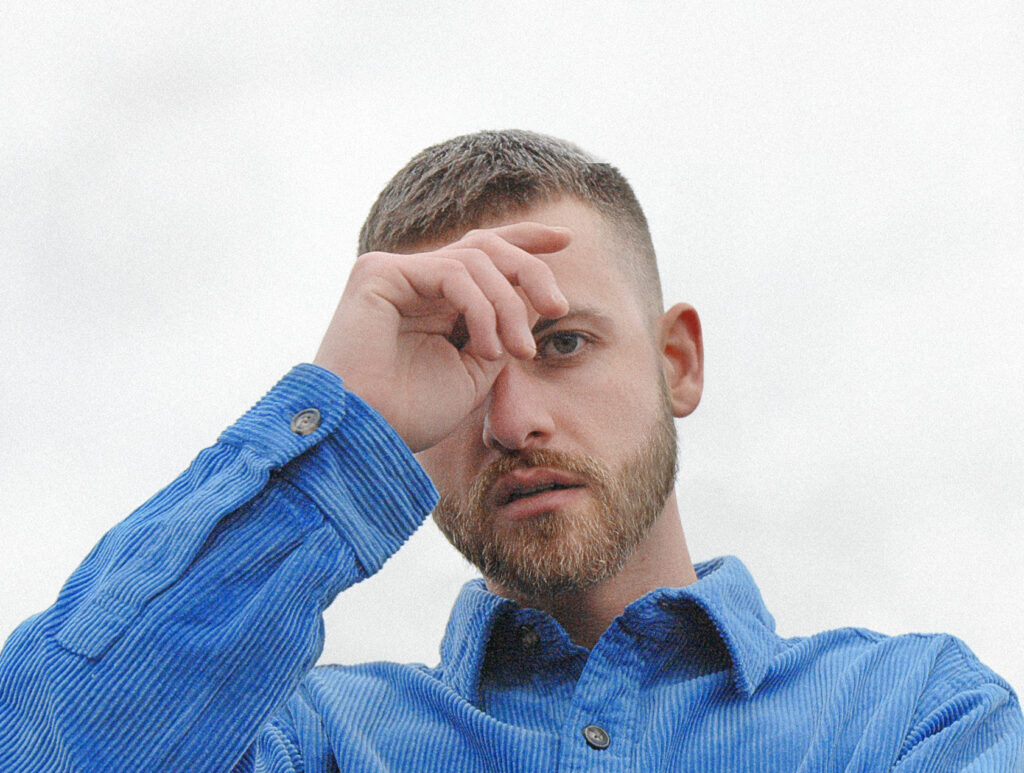Meet Eden Fern, an emerging artist whose musical universe combines personal growth with creativity. With each of his singles, Eden Fern delves into themes drawn from his own experiences, from burnout to confronting addiction and relapse. Through visual and musical stimulations, Eden brings the audience into his world.
Hi Eden Fern! Could you tell us the inspiration behind your artist name?
When making music, I am very different from the person I am in my professional life. I don’t pause and reflect on every aspect. Everything rather comes very intuitively. And this is such a new way of living for me, a new experience for me. Therefore, I used Eden Fern as an artist name, because of its organic nature. My organic side, my intuitive side is finally blooming. And I wanted to celebrate that with the name. So that’s where that comes from.
Music is something that you have been doing for a little over 3 years now. How did it come to you ?
It’s such a pandemic baby. What do you do when you’re hours at home? I started writing poetry, because of a breakup. And then all of a sudden, I realized how intrigued I was by the cadence of poetry, and how it would flow. And to accentuate that cadence, I started putting just a very small beat onto it. So it became something spoken word-ish with an electro beat. And then all of a sudden, I started adding sounds to that in GarageBand. And it became a song. This first song was horrible [laughs], but the intention wasn’t to make a song, it was to get my words into a sound design.
When I got the hang of it, I started talking to friends who were doing music, and then they taught me the software to use. It just went pretty fast from there. After a couple of months, I already had hundreds of sonic ideas. There was something that I wanted to express and it needed to come out and it did so in the form of music.
When listening to your songs, I realized that you often settle on themes that you’ve experienced. So, I was wondering, is your music like therapy for you?
In my songs, I am very often focused on the theme of self-reflection, and of self-development because at this point, it’s a little bit the only thing that exists in my life. I am going through a really weird period in my life, which is the sum of having to deal with a breakup, my burnout, and the COVID epidemic, which broke something in me.
And these three kind of accumulated onto one another, which really shifted my nervous system. And I’m still trying to recover from that. My life is not the same as it was four years ago. I have major anxiety now and thus I have been taking solace in my isolation.
But I’m trying to get out of it. And music might just be the first step to getting out of this bubble. Music is very therapeutic in that sense, since I talk about this isolation bubble as a means to get out of it.
You’ve talked about your anxiety. Will that not be a problem when you perform live?
I’m anxious about doing live performances, but at the same time, I feel like I’m a little bit addicted to adrenaline. And I’ve been having that for all of my life. I used to drink seven coffees a day, but my nervous system cannot take it anymore [laughs]. I love living on adrenaline and doing risky stuff and doing big presentations at work, for example. I will probably have that adrenaline again when I will start performing live and I love that.
Now, there’s a backlash to having such a rush. I have to pay a price for the adrenaline spike. After having an adrenaline-filled moment, I am completely dead. My body cannot take it anymore, just like with the coffee. So I think performing live will be fine, but I will always have a backlash.

Are you solely planning on releasing music for now, and then, when you’re ready, start to perform them live?
Yeah, that’s the plan, which is now starting to come together. My drummer, my guitarist, and I have rented a rehearsal room. So as three, we’re going to perform Eden Fern. But before being able to perform anything, I have to have material. So that’s why I kind of shoot them out now. Since September, I have already released five singles, which is like pow, pow, pow.
That’s very indicative of me. Just overdoing things, overworking things, and then having a backlash, and then another burnout. But if I keep doing this, music will become this anti-passion, and it will work against me. If this happens, I will have lost it. In therapy I’ve mentioned my music as something precious. And I want to treat it as something precious and not the way that I’ve been treating everything else in my life. So I’m really trying to balance things because my natural instinct is to just go, go, go. Must be because I’m an Aries. But I have learned the hard way that I have to calm the fuck down [laughs]. Now, live performances are on their way, and I really want to have that still this year.
Your first single, “The Righteous“, was released in September. This single is about your third-burnout. Could you tell us a bit more about this single and its music video?
I’ve had three burnouts, and here’s the reason why: When you quit work for a bit after a burnout, you’re alone and devoid of external pressures and impulses. So you feel as though you’re fine and you want to return to work. This led to three burnouts, essentially one prolonged burnout, due to returning to work prematurely. Extracted from stressful situations, you feel fine, but returning too soon leads to the realization that prolonged healing is necessary. During this recovery period, I found solace in mixing music, a therapeutic outlet during my hiatus from work. This experience inspired “The Righteous“, which delves into the cycle of making mistakes and neglecting self-care, driven by the desire to please others and maintain a flawless image.

I’m obsessed with music videos. So as an art-director myself, I obviously wanted to direct my own music videos. I did that, and I’m very happy with the results. Now that I’ve proved that to myself, I can experiment working together with other directors, and I’m sure the quality of the video’s will go up, as I am at the end of the day only an amateur. Plus, realizing that I don’t need to control every aspect of my art, allows me to focus more on my own strengths.
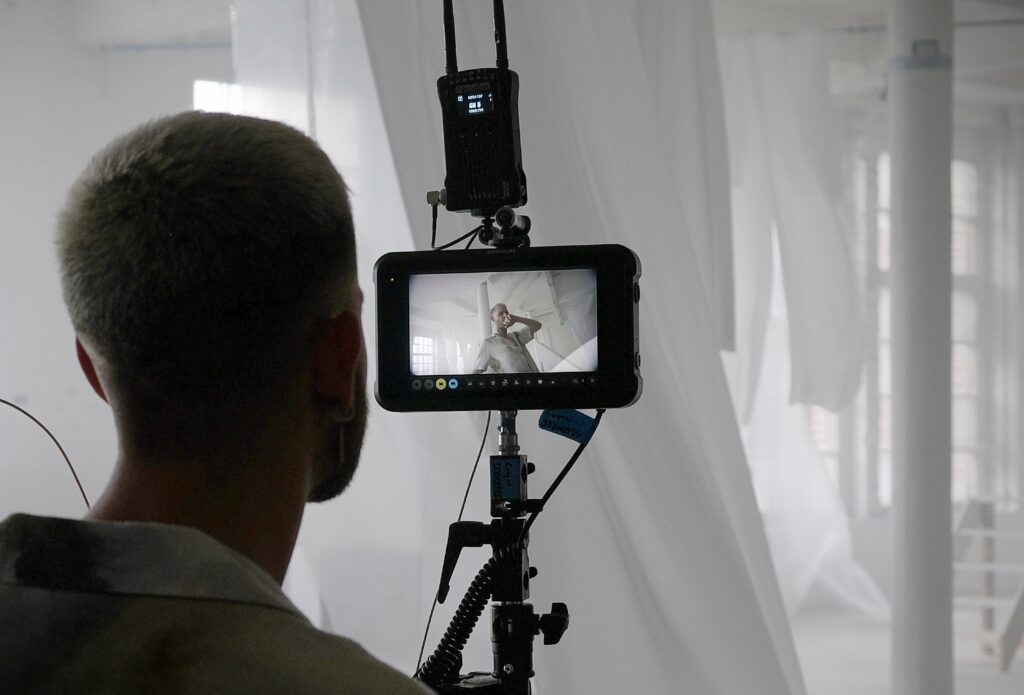
Your second single, “Stay“, was released with three remixes. How did you decide that you wanted to create these remixes?
The idea behind the remixes was to highlight diversity across genres and introduce my name to new audiences. Collaborating with supportive producers, each remix offered a unique interpretation, which added to the song’s versatility. While it partly served as a (failed) marketing tactic, it also fostered collaboration and exploration, laying the groundwork for future collaborations.
The decision to include an AI-generated music video stemmed from a desire to be one of the firsts to use the new technology’s accessibility. “Stay” is about a toxic relationship, in which I’m trying to seduce the person by saying that I can be anything they want me to be. So, in the music video, I filmed myself, and with AI, I shapeshifted myself into different people to further emphasize the idea. Although I really liked the result, I later reconsidered the music video, particularly because at some point in the video, the shapeshift into different races, which opens up the conversation about digital blackface. Although art is sometimes about pushing boundaries, raising conversations and ruffling feathers, I still want my brand to feel like a safe space for my audience. It is a priority, therefore I deleted the music video, without feeling like I compromised my art.

Your single, “Colours“, also has a different sound. And the music video there is also very different, minimalistic, with just you pole-dancing. What was your inspiration?
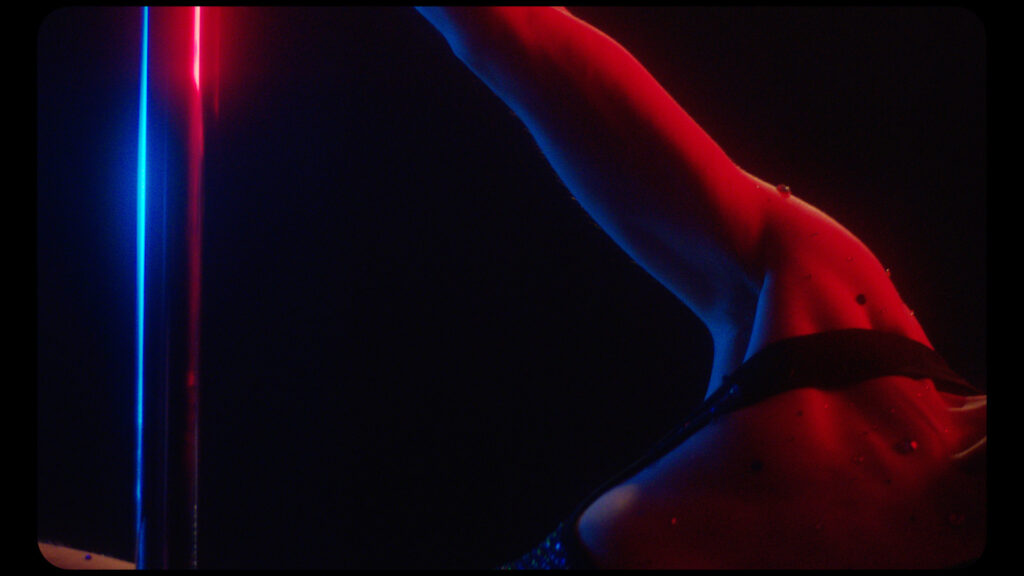
My single “Colours” is accompanied by a minimalistic video featuring pole-dancing, symbolizing a personal challenge to embrace femininity. In my day-to-day life, I am not very flamboyant, and I feel like I’m contained in some ways, forced to follow the norms that have been established by our society. So it was a way for me to open up and explore. The song is called Colours, because I feel like nobody’s seeing all the colors that I have to offer. The song’s theme resonates with individuals navigating similar struggles. While I do not have the pretension of saying that this could be aspirational for anyone, I feel as though it could contribute to broader conversations on self-expression and societal expectations.

With “Blackout“, we shift from this minimalistic video to a very fun, and surreal music video. The people in the video are dressed up as surreal creatures. Is there a significance behind this?
With “Blackout”, I wanted to veer into a more surreal realm, which visually represents my struggles with alcohol abuse. The whimsical costumes and creatures juxtapose the darker undertones of the song, exploring themes of fun versus self-destructive behavior.

The lyric that comes back is: “are you having fun?” And I asked that question, because I don’t know if I’m having fun in a blackout, because I never remember. And so it feels like I keep going back to that point where I’m having a blackout. But I don’t know what happens if there is a blackout. So in the video, I just fill in the blanks, because we don’t know what’s up, but apparently it has to be super fun, since I keep going back there.
The song really challenges perceptions of intoxication, because I feel as though alcohol abuse is encouraged by society. Society is very hard on every other drug abuse, but maintains a very soft approach to alcohol. We work from Monday to Friday, and then we have our weekends where we drink to be able to do it all over again. Society pushes it into us, because they want the people to be able to get it all out, and then do the work again.
Your new single, “Nosedive“, came out recently. So what would you say is the theme of this song?
With “Nosedive”, I confront relapse and its accompanying shame and isolation. I have been sober for two years, but I relapsed in December. In these weeks of heavy drinking by myself, there were two days I did not drink: Christmas and New Year’s Eve. Why? Because I was with other people, people who still thought I was sober. I was hiding it from everybody. It was isolating and scary.
In a way, I am happy that I relapsed, since it made me realize numerous things. I joined Alcoholics Anonymous, because I needed that support and needed to get out of isolation. The song really tries to delve into this and the complexities of addiction recovery. I wanted to highlight how important it is to seek support and show self-compassion, because nobody’s gonna shame you and blame you. And you need to create a safety net for yourself.
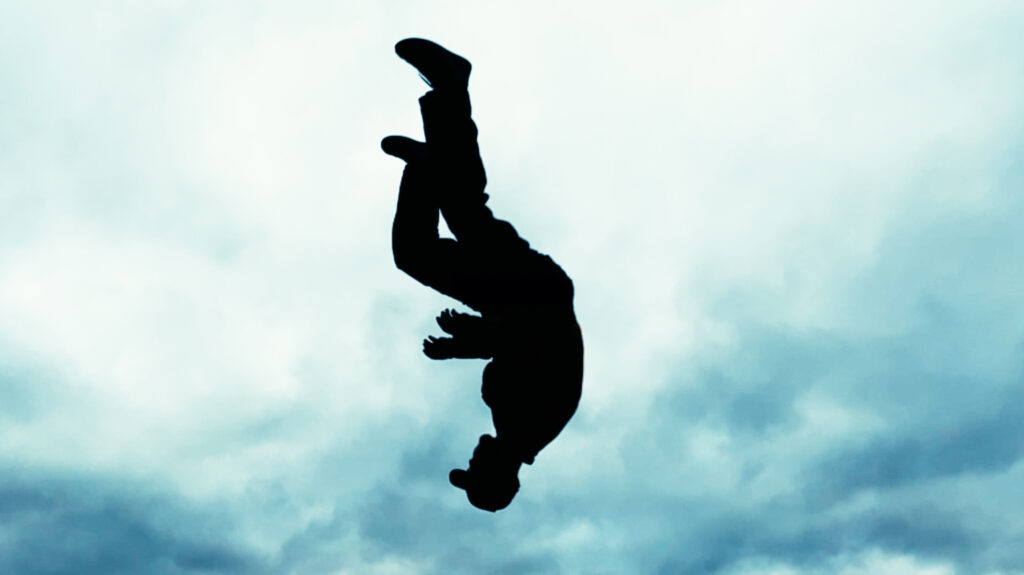
Was the use of autotune an artistic choice to amplify the theme?
Usually, I never use autotune, but the use of autotune here truly amplifies the song’s emotional rawness, and helps put an emphasis on the vulnerability and instability I felt in the moment of my relapse.
Right now you’re mixing genres in your songs. But there is still a cohesiveness, in the sense that they all have a theme that’s about you and your experiences. Is that something that you want to continue to do? Or do you want to pick a genre and stick to it?
I aim for diversity in my music, which is something very cliché to say, but I just don’t want to be pigeon held in one genre. However, recently, a conversation with a music industry insider made me question this approach. They suggested that as an emerging artist, clarity might be more engaging than broadness because the audience wants to understand you and your universe as an artist. Now, I’m torn between following my creative instincts and adopting a more strategic mindset.
I think my current plan is to release singles spanning various genres, which allows for creative freedom. However, once I reach my sixth single, I want to focus on crafting a cohesive EP. This EP will convey a unified message or theme, and that’s when I will have to make genre-specific decisions. While I’ll continue exploring different sonic avenues through demos, the next logical step is to consolidate my artistic direction.
What do you hope listeners will take away from your music?
I believe the advantage of knowing an artist from their early stages lies in witnessing their evolution and development. This journey of growth is captivating, and it’s why I’m committed to documenting my progress. By including visuals with each single and pushing myself beyond my comfort zone, I’m addressing my fear of imperfection, which starkly contrasts with my usual perfectionism in both my personal and professional life. In my musical career, I still strive for perfection, but I’ve learned the importance of releasing my work to be seen. I’m accepting that what I present may not reflect my full potential yet, but that’s okay. I’ll grow from this experience, and I’m hopeful that my future creations will demonstrate improved quality and depth. If you’ve been with me from the start, you’re part of this journey too, and that, I believe, is a compelling reason to listen to my music.
If you want to discover Eden Fern’s universe, don’t hesitate to follow him on all of his social media platforms and on Spotify, where you can listen to all of his music.
You may also like
-

Laugh, Love, and Friendship: Atout Comedy Club Brings Queer Joy to Brussels
Forget Valentine’s Day clichés—this year, Brussels’ queer comedy scene is celebrating friendship instead of romance. On Friday, February
-

Motherland: A Chaotic Cabaret That Mirrors Belgium Itself
What if Belgium were a drag show?That’s the question at the heart of Mère Patrie, a
-

Adriano Selva: The Soulful Pop Dreamer Who Feels It All
In a world that often rewards detachment, Adriano Selva chooses to stand beautifully exposed. His
-
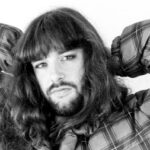
Splinters of Joy: Lylybeth Merle’s Eco‑Queer Fairy Tale of Transition and Healing
Lylybeth Merle’s new book Échardes (“Splinters”), out in February 2026, is a tender, defiant journey through gender,
-

Bad Bunny Makes Grammys History — and Turns the Stage Into a Political Movement
It was a night that rewrote the rules of pop culture — in Spanish. At

